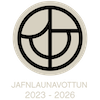Almenn verkefni 2023
Almenn verkefni 2023
Heiti verkefnis : | Aukin svæðisbundin þekking á loftgæðum höfuðborgarsvæðisins með notkun lofgæðamælanets | |
Verkefnastjóri : | ||
Stutt lýsing á verkefninu: | ||
Public interest in air pollution in Iceland has been growing in recent years. The interest is mainly due to increased public awareness of the effects of pollution on people's health and quality of life. Today air quality is monitored with the use of stations operated by the Icelandic EPA, which have a high investment and maintenance costs. Therefore, the number of measurement points stays limited. In case of events where the air quality is falling below recommended levels by health authorities, it is not possible to determine accurately the sources and their locations due to regional differences in air quality. For the past 2 years, ReSource has been actively working on supporting municipalities in Reykjavík area to install on their behalf new sensors with low investment cost and data readily available to the public. The proposed project is in the continuity of these efforts and propose additional monitoring points with an extension of the monitoring network. Furthermore, the project aims at the analysis of data to identify more accurately the type of sources over time and their spatial distribution over the great Reykjavík area. | ||
Tilgangur og markmið: | ||
Public interest in air pollution in Iceland has been growing in recent years. The interest is mainly due to increased public awareness of the effects of pollution on people's health and quality of life. In Iceland in 2017, it is estimated that 80 deaths were related to air pollution (Umhverfisstofnun, 2017). To assess the impact of air pollution on public health, sufficient measurements must be available to describe direct exposure that citizens might be receiving. Today air quality is monitored with the use of stationary stations operated by the Icelandic EPA, which have a high investment and maintenance costs. Thus, the number of measurement points stay limited. In case of events where the air quality is getting lower than recommended levels, it is not possible to determine accurately the sources and their locations due to regional/topographical/zonal differences. Furthermore, even though sources are recognised by stakeholders, there is still an unsettled agreement regarding the proportion of each source on the air quality over time. And better scientific knowledge on the matter would be required to give more information to public authorities and the citizens. For the past 2 years, ReSource have been actively working on supporting municipalities to install on their behalf new sensors with low investment cost and data delivered to the public. The proposed project is in the continuity of these efforts and propose additional analysis of the data collected to answer the following questions: • What are the observable regional/topographical/zonal differences in air quality within the capital area? • Can a network of sensor help in identifying the pollution sources and changes over time? The main goals of the project are: • Increase public awareness of air quality in their local environment. • Increase monitoring points and network in a cost-efficient manner. • Improve knowledge of the distribution of particulate matter and other air pollution parameters • Improve identification of the pollution sources (Street dirt, vehicles/boat emissions, geothermal emissions, etc.) • Assess the effectiveness of countermeasures e.g. against particulate matter with street sweeping and wear resistance of asphalt | ||

